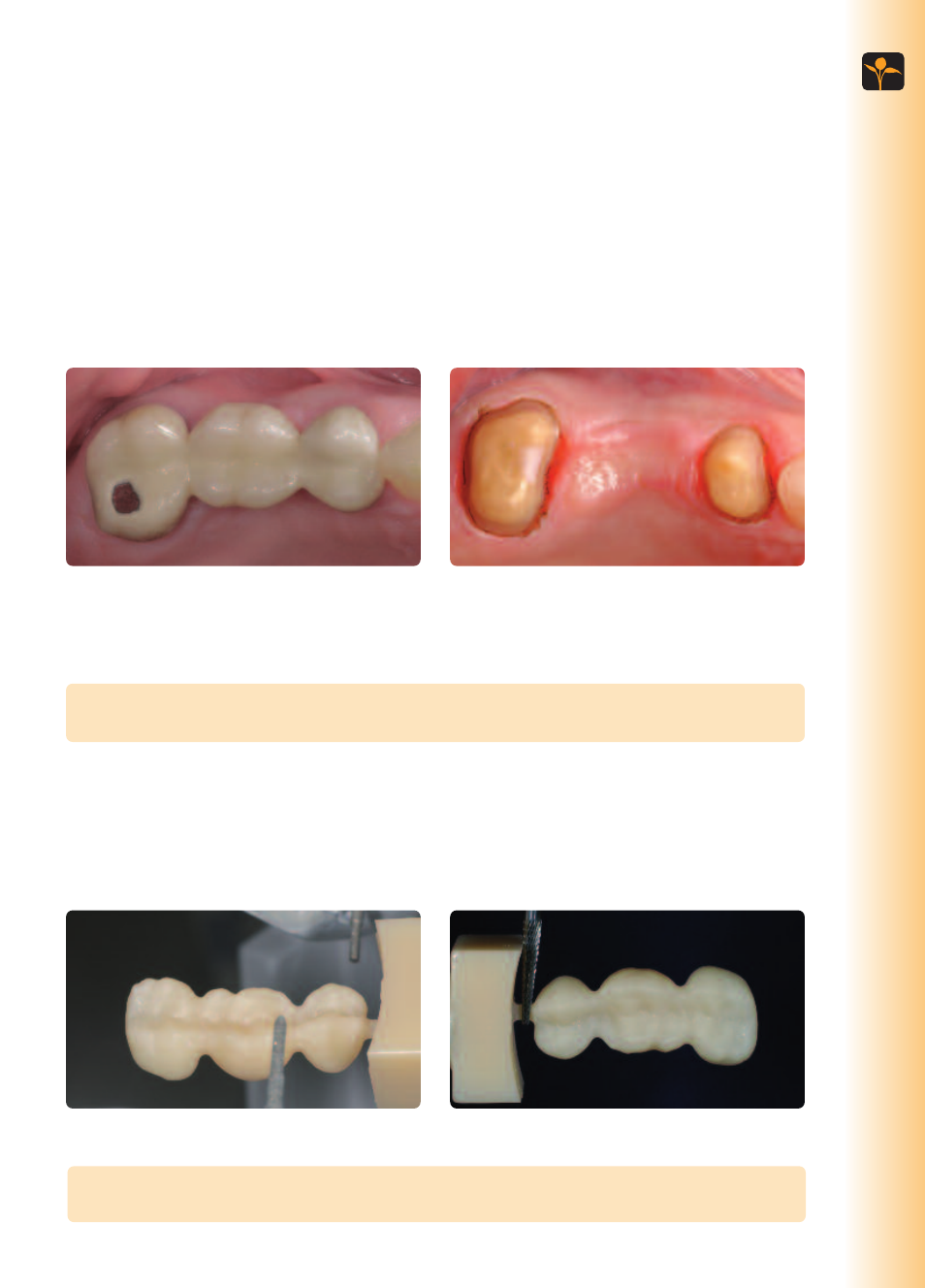Telio cad, Fully anatomical fabrication and final polishing – Ivoclar Vivadent Telio CS User Manual
Page 29

Te
li
o
C
A
D
–
F
u
ll
y
a
n
a
to
m
ic
a
l
fa
b
ri
ca
ti
o
n
a
n
d
fi
n
a
l
p
o
li
sh
in
g
In this processing technique, the restoration is polished and incorporated immediately after milling in the
CAD/CAM system. In the process, the surface lustre is achieved by manual polishing. This processing
technique is very efficient and leads to an esthetic result quickly and easily.
Depending on the CAD/CAM system used, spray the preparation with IPS Contrast Spray Chairside in
order to ensure optimum scanning results. Subsequently, scan the preparation. Then clean the preparation
with the water jet, air syringe – additionally use rotary brushes and water spray if necessary.
Select Telio CAD in the material selection of the software and construct the long-term temporary using
the software. In doing so, observe the minimum thickness for the intended application.
Clamp the Telio CAD block in the CAD/CAM unit and mill with the appropriate grinding tools.
After milling the restoration is separated from its holder with a fine tungsten carbide bur or a diamond
separating disk and fitted on the model.
Telio CAD
– Fully anatomical fabrication
and final polishing
Note on the fabrication in Sirona units
Use the “Reduced design bridge technique” to be able to check the connector surface.
29
Starting situation
Preparation
Telio CAD restoration after milling in the CAD/CAM unit and being detached from the holder
Remove any possible white spots on the restoration that developed during milling in the CAD/CAM
machine using a tungsten carbide bur.
